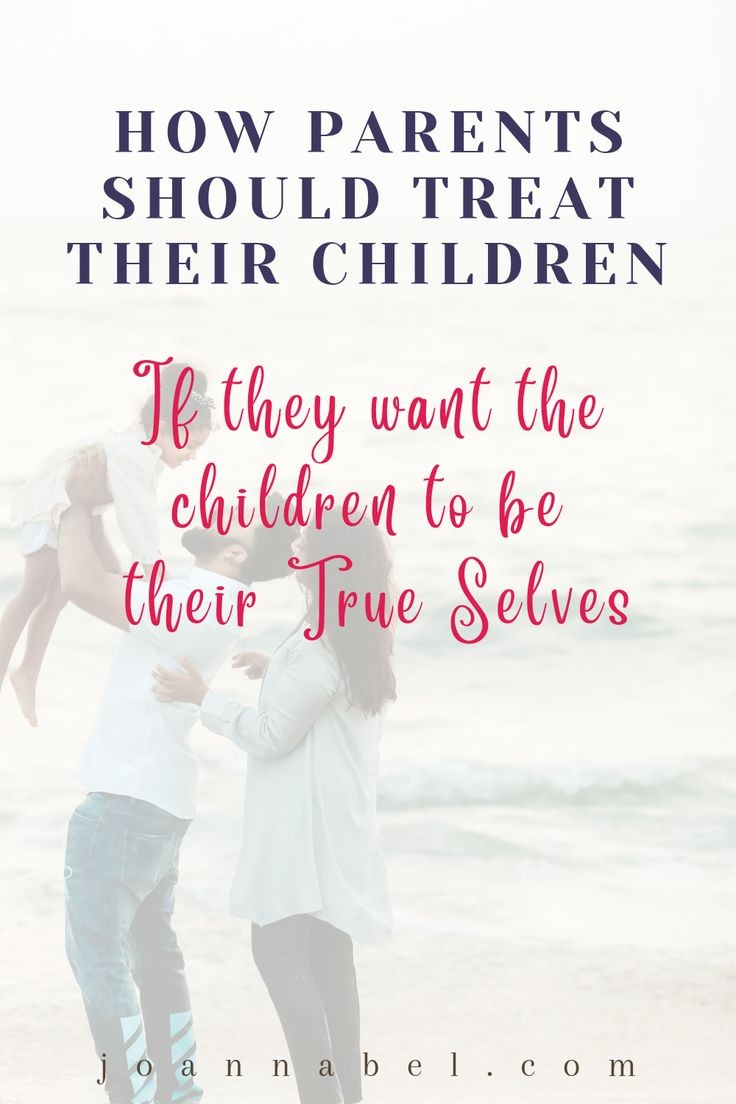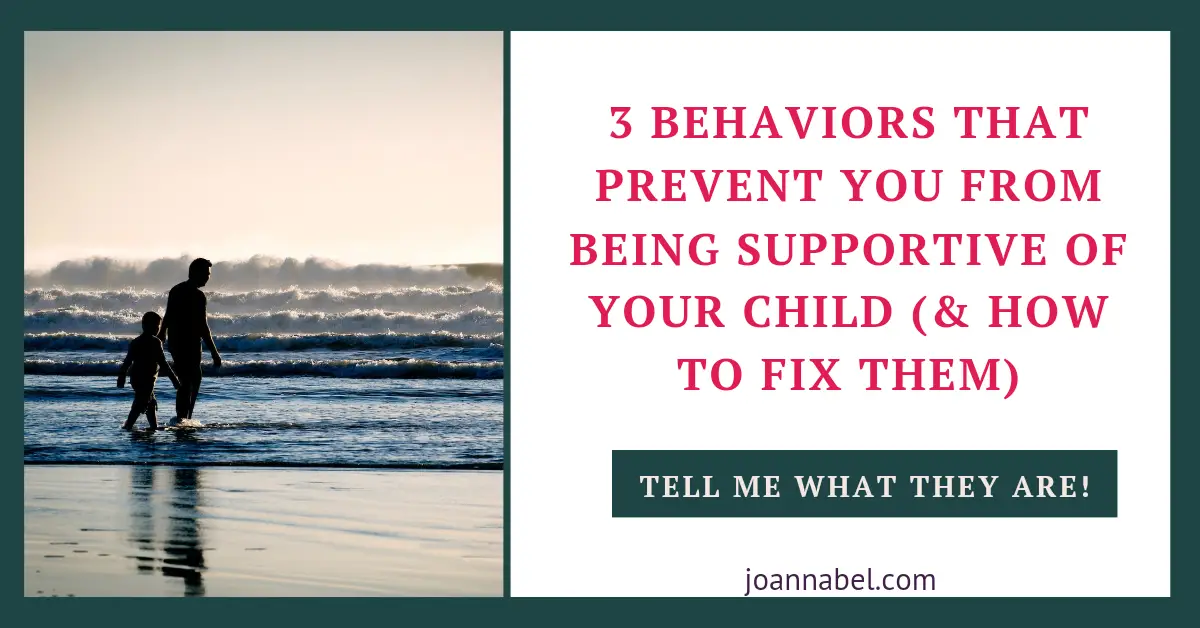Would you like to ensure that your children are their true selves and grow into autonomous adults who are self-reliant, resilient, independent, and aware of their competence? If you would, then stay with me, because in this post I’ll uncover how parents should treat their children if they really want all of this to come true.

How Parents Should Treat Their Children
Parent should treat children respectfully and equally, both kindly and firmly, and they should be flexible in providing structure for the child.
Now, I’ll provide guidelines regarding the parents’ “optimal” tretment of children, and invite you to think about what you can do today to start treating your child like you both deserve.
Let’s jump right in and explore this further!
Note: Although I am a Clinical Social Worker, engaging with this website does not establish a professional social worker-client relationship. The information provided here is for general purposes only and should not be considered professional advice. While we strive to ensure accuracy and reliability, this content is not a substitute for professional guidance. For specific concerns, issues, or situations, it is essential to consult a qualified professional and present your situation. Read the full Disclaimer here.
HOW PARENTS SHOULD TREAT THEIR CHILDREN

1. A PARENT SHOULD TREAT A CHILD RESPECTUFULLY AND EQUALLY
This feels redundant to mention, but it isn’t when we dig a little deeper into how adults treat children.
Respecting someone and treating them as equals comes from acknowledging the independent, sovereign existence, value, and integrity of something separate from our own existence, interest, and how useful it is for our needs.
To be truly respectful and stick to equality in our interactions with someone, it doesn’t just mean to try to be nice to them, to be helpful most of the time, or to be tolerant (to a certain extent).
The vital part of respecting them is to accept and acknowledge them for who they are separately from us and not try to adapt them to the standards that fit us or see them just in terms of how they fit into our needs or interests.
More precisely, it’s not about assigning value to something or someone just because they can or want to do what we need, want, or please.
Or about imposing criteria suitable for our position, characteristics, preference, or abilities on someone who doesn’t belong to our “type.” This is a vital part of treating someone equally.
So we’re not equal because we’re exactly the same. We’re equal because we are equally worthy and just enough as we are in our “type,” which doesn’t need to fit some other, unless we want it to, of course.
When it comes to children, without acknowledging them as separate, sovereign, and with their own integrity (as in being whole and undivided), they can’t really feel respected and like equals.
Treating them as “separate” doesn’t mean breaking a bond we have with them, or that we don’t need each other, or that we’re less important for their lives.
It simply means that if we want to respect children, we need to shift our focus from our interests, conveniences, and opinions in all of our interactions with them.

And we need to include flexibility in our thinking, observing, and actions (responding) in all situations that directly or indirectly affect them.
To do this, we need to think about their position and perspective, as well as get their perspective on things. Or anticipate it, if we are skilled enough to do it, at times when it’s not possible to hear their perspective.
Most of the time, it is possible to get their perspective, but the problem comes back to equality: we don’t make an effort to do it because we prioritize our convenience over their interest, which has equal significance as our interest but we don’t honour it.
We even prioritize our opinions, interests, and convenience when their interests exceed ours.
Let’s take education as just one example I like to mention.
We make children adapt to all educational standards without even consulting them about how they feel about the conditions in which they are obligated to adapt. (I’m not saying we should let them guide, I’m saying enable their participation.)
Just try to remember when you were in school and if someone has ever asked you what you think about any aspect of the education system that was supposedly designed for you, no matter how small the aspect was.
Sad to say, the same happens to kids in ALL areas of life.
So, if you have decided to really show respect to your child, start questioning to what extent you are letting your child “exist” separately from you.
In my professional and personal experience, when it comes to this topic, we (adults) give ourselves more credit than we often should, so I suggest that you dig a little deeper to find out where you stand on it.
If you make the necessary effort to adjust your treatment and make a change, the relationship with your child can not only go from good to great, but it can also shift from dysfunctional to great!
You may also want to check out:
- WHERE TO START WITH PERSONAL DEVELOPMENT: 7 CRUCIAL STEPS
- TOP 16 TOOLS FOR PERSONAL DEVELOPMENT FOR GROWTH AND SUCCESS
- 14 THINGS TO BUY FOR SELF-IMPROVEMENT AND UNLOCK YOUR POTENTIAL
- 9 GIFTS FOR PERSONAL GROWTH ENTHUSIASTS TO LEVEL UP THIS YEAR
Parents should be both kind and firm in their treatment of children, and the two don’t exclude each other.
They either complement each other or are used at the same time.
This may sound counterintuitive to you, but I’ll explain. Being assertive in our communication with others means that we’re not attacking or withdrawing, but staying kind and gentle with the person while being firm with our demand.
It’s not always a demand at stake, but you get the point. If we want the communication to be effective, we should remain respectful of the person and focus on our goal, request, or demand argument, depending on the situation.
When it comes to children, we stay gentle with them while we’re setting the boundary, imposing limitations, making a demand, or making a request.
We do include them in conversation and explain our reasons behind the request to the extent we sense it’s enough for the situation (which means we do explain ourselves, but we don’t try to justify our demands that need to be fulfilled through pushing and pulling).
But we don’t withdraw or attack.
At times this can be challenging, but it helps to remember that kids have their own agendas just as we do, and they’ll test the boundaries, show disobedience, and engage in mischief. That’s a good thing, because you don’t want them to be passive and grow into withdrawn people who can’t stand up for themselves or others when needed.
Do you see where I’m going with this?
You just stay determined and firm when it’s vital for their good and their best interest, and even if they complain, don’t take it too personally because they still need you to set boundaries and limitations regardless of the complaining.
Sometimes they need it so you can focus their attention better from all the distractions when they’re not fully ready to manage distractions themselves.
And, at other times, with your determination, you’ll support their evolving socioemotional maturity with the right set of limitations.
The kindness you nurture with them means that you’re responsive to their emotional and other needs and give them enough space to express themselves freely – how they feel, think, to wonder and explore, to question things in a curious and not a prying way, etc.
To conclude, you can both be kind and firm with children, and you shouldn’t be afraid of it if you do it in the balanced way we just talked about.
You’ll also find useful:
3. A PARENT SHOULD BE FLEXIBLE WHILE PROVIDING STRUCTURE FOR THE CHILD
This is closely related to our previous subject, where we mentioned setting limitations and boundaries.
This is essential if you want to witness well-adjusted child behavior; you need to provide (enough) flexibility within your set of limitations and rules.
What this means is that a (too) restrictive environment creates resistance and exhaustion, while a permissive environment creates “chaos.”
If they can’t resist you directly, they’ll form internal resistance, and some will resist all authority. Some will become withdrawn and insecure.
So if you want a child to be able to function within your limitations, you need to provide the right (flexible) structure so they’ll know how to behave. But they need to be comfortable enough to fit the structure.
This means they need to have enough room to participate, express themselves and their needs and wants, grow their independence, oppose, and even disobey while still having the structure.
When kids exhibit behavioral problems, what often presents itself as a problem is the lack of consistency in providing discipline.
And when I say discipline, I don’t mean (just) punishment; I mean consistency in providing structure, limitations, rules, guidance, modeling prosocial behavior, and providing feedback about their behavior or what is acceptable behavior.
So flexibility goes hand in hand with structure and limits, and you shouldn’t fear giving children a space to find their way. Quite the contrary.
When you give someone enough maneuver space to behave and respond to your expectations willingly, they’re more likely to comply with the concrete expectation.
At the same time, it’s important that they are allowed to say no to you, because this is consent – if someone can’t say no to you this is in conflict with consent.
So when you offer children flexibility and structure, you get them to move around comfortably while still complying with your boundaries, which is in their best interest.
You’ll probably find useful also:
Latest Posts:.
- Gifts for Your Teenager That They’ll Actually Enjoy

- 6 Reasons Your Teenagers Seem Distant and Distracted

- Special Gifts to Let Someone Know You’re Thinking of Them (13)

- 100 Ways to Challenge Yourself (Without Stretching Yourself Too Thin)

- What To Do When Your Parent Struggles With Alcohol

- How To Navigate Moving to a New Home With Your Kids

Related: 9 Biggest Mistakes Parents Make
FINAL THOUGHTS ON HOW PARENTS SHOULD BEHAVE WITH THEIR CHILDREN
These were the guidelines concerning how you should treat a child as a parent, and I hope you find them helpful. If this resonated with you, I invite you to reflect on this and define what you can do differently concerning your treatment of your kids. This is in case your treatment varies from what I’m suggesting here (a lot).
I recommended that you go step by step, as Rome wasn’t built in a day. We tend to return to our old ways of doing things, but this doesn’t mean that you’re going back to the start after you’ve expanded your consciousness.
Thanks for your attention, and see you in the next post! Here is one:









Leave a Reply